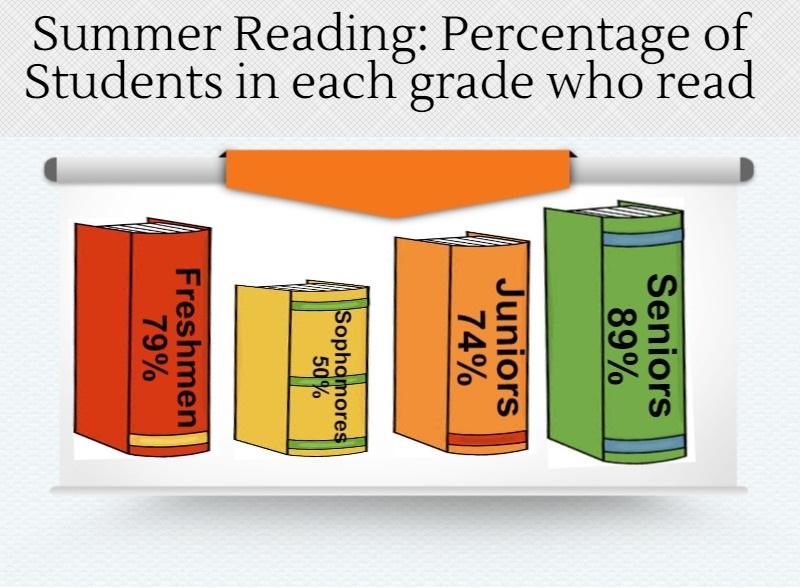By Haley Nakonechny
Summer is the time for relaxing, lounging at the beach and forgetting about all things related to school—except for summer reading. A mandatory assignment for students entering grades five through twelve, summer reading is loved by some, tolerated by others and dreaded by many. Either way, it is critical in starting the school year off on the right foot.
Of the 195 students in grades nine through twelve polled, approximately 76 percent said they read the assigned book, while the remaining 24 percent either didn’t start or didn’t finish. The highest percentage of those who read were seniors, while those who didn’t finish or start were mostly sophomores. This does not surprise sophomore English teacher Jillian Zarr. “Maybe fifteen to twenty percent of my students read A Tree Grows in Brooklyn,” said Zarr.
Students are not alone in their distaste for summer reading. “I don’t think [summer reading] should be a formal requirement by the schools, and experience and history have shown that it is not particularly effective,” said senior English teacher Hope Brand.
Over the summer, students are not enrolled in school and teachers are not under contract to work. Because of this, Brand thinks it is unethical for students to have to read material that is crucial to know at the start of the school year. “Whoever takes [an English] course, has to begin his or her study before school is even in session, and that, to me is inconceivable,” said Brand. “There should be no course in high school that cannot be covered in the ten months of the school year.”
Potential changes can improve the summer reading program for the benefit of both teachers and students.
“I would love to see more teachers involved and maybe some more high-interest texts,” said junior English teacher Elizabeth Coleman.
Past alterations have already bettered the summer reading program.
“I know we’ve instituted choice in some cases, or students used to have to read two books and now they only have to read one,” said Dr. Jocelyn Dumaresq, district English supervisor.
Dumaresq advocates summer reading as an important transition into the school year. “Research shows that if kids don’t read over the summer, they come in less prepared to start the year,” said Dumaresq.
Summer reading may be unpopular among students and some teachers, and might need changing in order to be fully effective. Nevertheless, it should remain a requirement and its benefits should be appreciated. A crucial element of the currciculum, summer reading provides a strong foundation for a successful school year.
Teachers weigh in on summer reading
October 29, 2014
0
More to Discover








